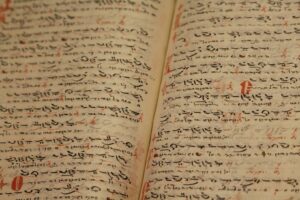Delving into the pages of ancient history books is like embarking on a captivating journey through the corridors of time. These literary treasures offer a unique portal to bygone eras, allowing readers to unravel the mysteries of civilizations long past. From the rise and fall of empires to the daily lives of ancient peoples, these books serve as windows to worlds that continue to intrigue and inspire.
Ancient History Books
 Delve into the captivating journey of exploring ancient history through the pages of literary treasures. These books offer a unique portal to bygone eras, unraveling the mysteries of civilizations long past. The narratives within breathe life into tales of triumphs, struggles, and the enduring legacy of our ancestors, sparking wonder and curiosity about our shared human heritage. Each turn of the page unveils new insights and perspectives that enrich our understanding of the past, be it the annals of Egypt, Rome, or Mesopotamia.
Delve into the captivating journey of exploring ancient history through the pages of literary treasures. These books offer a unique portal to bygone eras, unraveling the mysteries of civilizations long past. The narratives within breathe life into tales of triumphs, struggles, and the enduring legacy of our ancestors, sparking wonder and curiosity about our shared human heritage. Each turn of the page unveils new insights and perspectives that enrich our understanding of the past, be it the annals of Egypt, Rome, or Mesopotamia.
Significance of Studying Ancient History
Studying ancient history is crucial as it provides a deep understanding of the origins of civilization. It offers valuable insights into the development of human societies, uncovering the foundations of modern cultures, traditions, and societal norms. Delving into ancient history allows one to trace the roots of various civilizations, comprehend their advancements, and learn from their achievements and mistakes.
Understanding the Origins of Civilization 
Exploring ancient history enables individuals to grasp the fundamental aspects that contributed to the establishment of early civilizations. By studying the ancient past, one can analyze the evolution of human settlements, the emergence of complex social structures, the development of agriculture, and the progression of technological innovations. Understanding the origins of civilization offers a unique perspective on how ancient societies laid the groundwork for the world we inhabit today.
Preserving Cultural Heritage
Studying ancient history plays a crucial role in preserving cultural heritage for future generations. By immersing oneself in the narratives of ancient civilizations, individuals can appreciate the rich tapestry of human accomplishments, traditions, and belief systems that have shaped our world. Preserving cultural heritage through the study of ancient history ensures that the legacy of past civilizations is recognized, valued, and safeguarded for the benefit of present and future societies.
Analyzing the Accuracy of Ancient History Books
Ancient history books play a crucial role in understanding the past, but their accuracy can sometimes be a topic of debate. When assessing the reliability of ancient history books, one must consider various factors that could impact their trustworthiness. Historical accuracy depends on the credibility of the sources used by the author, the objectivity of the narrative, and the historical context depicted in the book.
 When evaluating the accuracy of ancient history books, readers should scrutinize the author’s use of primary and secondary sources. Primary sources, such as original documents and eyewitness accounts, offer firsthand information about historical events. On the other hand, secondary sources provide interpretations or analyses of primary sources. A well-researched ancient history book should rely on a mix of primary and secondary sources to ensure a balanced and comprehensive narrative.
When evaluating the accuracy of ancient history books, readers should scrutinize the author’s use of primary and secondary sources. Primary sources, such as original documents and eyewitness accounts, offer firsthand information about historical events. On the other hand, secondary sources provide interpretations or analyses of primary sources. A well-researched ancient history book should rely on a mix of primary and secondary sources to ensure a balanced and comprehensive narrative.
Moreover, the objectivity of the author is paramount in determining the accuracy of an ancient history book. Bias or subjective interpretations can distort historical facts and mislead readers. Authors should strive to present information impartially, relying on evidence rather than personal opinions. By maintaining objectivity, authors can enhance the credibility of their work and provide readers with a more accurate portrayal of ancient events.
Additionally, the historical context presented in ancient history books should align with established historical knowledge and research findings. An accurate depiction of historical events requires authors to place them within the appropriate context, considering the social, political, and cultural factors of the time period. Readers should be vigilant about inconsistencies or inaccuracies that deviate from accepted historical records.
In essence, analyzing the accuracy of ancient history books involves evaluating the sources, objectivity, and historical context presented in the narrative. By critically assessing these elements, readers can distinguish between well-researched, credible ancient history books and those that may contain inaccuracies or biases.



